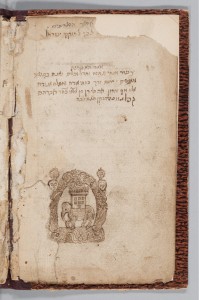When we first thought about the Footprints project, we had no idea of the complexities we would encounter. Neither, of course, did we know about how lucky we would be to have Columbia’s Center for New Media Teaching and Learning take on the entire technical burden of building the database so we would have the freedom to worry about the nitty gritty details. Like the word provenance, for instance.
According to the third definition in the Oxford English Dictionary, provenance is “The history of the ownership of a work of art or an antique, used as a guide to authenticity or quality; a documented record of this.” In a database dedicated to tracing owners, dates, and places, one can imagine that this term would come into play quite a bit. Two types of printed books can be found in Footprints:
- Books which are known to exist today
- Books which are not known to exist today
(Well, actually, there are many more types of printed books than that, but for the sake of argument, all the books in the database currently fall under one of the above two categories.)
So the question before us was: according to the definition listed above, could we use “provenance” for the second kind of book? If provenance is used “as a guide to authenticity…” of a specific, known work of art or antique, this might cause a problem. After all, one of the records in the database is to a book which might have been owned at one time – it is documented by Yeshayahu Vinograd’s Thesaurus of the Hebrew Book (with a notation of “no known copy”), and not by the National Library of Israel’s Bibliography of the Hebrew Book. Additionally, the only reference to this imprint is a manuscript copy (including the printers’ mark of the alleged printer) at Columbia University. Is this an imaginary copy? Could it have provenance? Or should we use another term entirely?
A conundrum, indeed. One of the many that we encountered while working on Footprints. We look forward to coming across many more as we continue onward!



Leave a Reply
You must be logged in to post a comment.